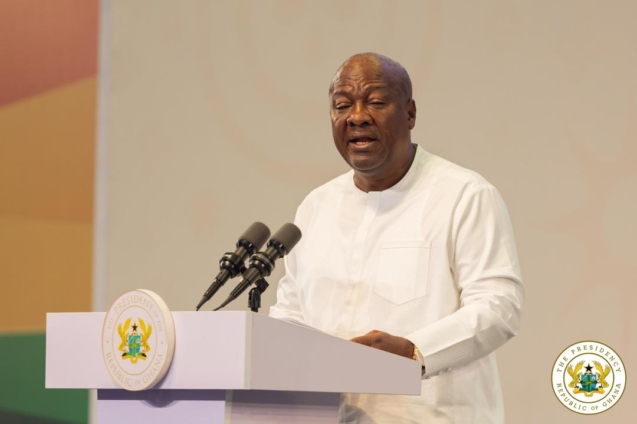adverts
President John Dramani Mahama has announced plans to reassess the controversial National Cathedral project, which was initiated under the previous administration but has faced widespread criticism due to its high costs and alleged mismanagement.
Speaking at the National Prayer and Thanksgiving Service in Accra on Sunday, January 12, 2025, President Mahama affirmed his commitment to completing the project responsibly and transparently.
“This project must be completed at a reasonable cost. Given the current circumstances that Ghana is facing, it makes no sense to undertake such a project at a whopping sum of $400 million,” he said.
adverts
The president referenced the National Ecumenical Centre in Abuja, Nigeria, which was completed at a significantly lower cost of $30 million, as an example of what could be achieved with prudent planning. “I believe we can achieve this project at a much more reasonable figure, and together, we can raise the necessary funds,” he added.
President Mahama revealed that his administration would also revisit the choice of location for the National Cathedral.
“Such a reconsideration of this project might even include changing the current site that was chosen for the project,” he stated, signalling a willingness to evaluate all aspects of the initiative to ensure its feasibility and public acceptability.
The president emphasised that state resources would not be used for the cathedral’s construction, addressing a key concern among critics of the project.
“On the future of the project, the Cathedral, I believe that all of us, as Christians, must forge a consensus on how to achieve this project without recourse to public funds,” he declared.
The National Cathedral was launched by former President Nana Addo Dankwa Akufo-Addo as a promise to God before his 2016 electoral victory. While initially assuring Ghanaians that public funds would not be used, it later emerged that state resources, facilitated by the then Finance Minister Ken Ofori-Atta, were allocated to the project.
The initiative has also been dogged by allegations of financial mismanagement, delays, and internal disputes among members of the Board of Trustees. These controversies led to public backlash and calls for accountability.
The Commission on Human Rights and Administrative Justice (CHRAJ) had previously called for a forensic audit into the project’s finances and recommended prosecution for any wrongdoing.


